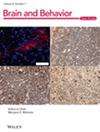Edaravone's Safety Profile in Acute Ischemic Stroke
Abstract
Background
We aimed to evaluate the safety of intravenous edaravone for the treatment of acute ischemic stroke among Filipino patients. The study, categorized as Phase IV, spans from December 2022 to November 2023. The primary objective is to document side effects and serious adverse events during the 14-day edaravone infusion period.
Methods
The protocol gained approval from the Institutional Review Board, and participants provided written consent. Inclusion criteria involved patients aged 18–70 with acute ischemic stroke within 24 h. Exclusion criteria included extremes of age, pregnancy, severe hepatic impairment, and participation in other clinical trials. Edaravone was administered for 14 days, underwent continuous monitoring, and adverse events were actively recorded.
Findings
Out of 64 enrolled patients, 58 completed the treatment, while 4 did not finish, and 2 dropped out. The majority were male (n = 35), median age of 53.5 years, and 81.03% exhibited moderate stroke severity. Two patients reported headaches, and one reported dizziness. No serious adverse events or other untoward effects were documented. Dropouts, attributed to a low ejection fraction, showed normal laboratory results and no side effects during edaravone infusion. Thrombolytic therapy was given to 37.93% of patients.
Discussion
Our study contributes insights into edaravone's safety, revealing a favorable profile with mild side effects, aligning with existing literature. Notably, no serious adverse events occurred, emphasizing edaravone's tolerability. Headache and dizziness, which were the common side effects in our case, did not lead to treatment discontinuation. The findings support the growing evidence of edaravone's safety in acute ischemic stroke treatment. Overall, edaravone demonstrates promise in stroke management, necessitating vigilant monitoring, especially considering individual cardiovascular health.


 求助内容:
求助内容: 应助结果提醒方式:
应助结果提醒方式:


